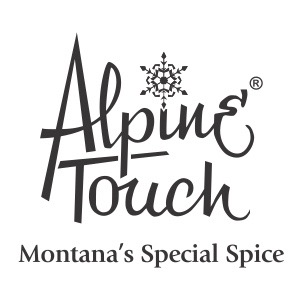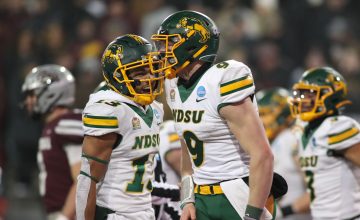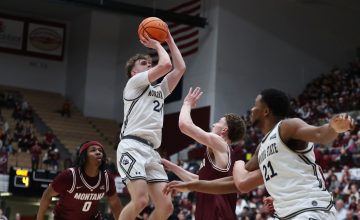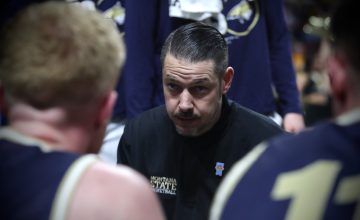It’s been a shade more than 30 years since the late Toby Keith first burst onto the scene with his breakthrough hit single “Shoulda Been a Cowboy.”
Over the last handful of years in Montana, it seems many a wannabe cowboy without a horse has descended upon the Treasure State, particularly in the “urbanized” epicenters of Montana’s two Division I college football teams.
“I walk around Bozeman and I see people’s cowboy hats on, boots, Wranglers, spurs, and I just kind of laugh in my head. These guys really think they are cowboys and I’m not sure if they even know what a cowboy is,” Bryce Grebe, a Montana State redshirt freshman, said with a chuckle earlier this year.
“Maybe we should take them to the ranch for some branding, see if they can really ride a horse (laughs)”.
Grebe and his All-American older brother Brody are two of the real cowboys in the Treasure State. And if you look at a few of the best players in the Big Sky Conference this season, maybe there is something to “shoulda been a cowboy” when it comes to football in the BSC.
Entering the much-anticipated final three weeks of the 2024 regular season, a trio of the headlining players leading Montana State, Montana and UC Davis have distinct cowboy backgrounds. And all three will be key factors as the No. 7 Griz host the No. 4 Aggies on Saturday in Missoula before Davis hosts the No. 2 Bobcats next week. Of course, the regular-season comes to a crescendo Nov. 23 in Bozeman as MSU hosts UM.

Brody Grebe, the preseason Big Sky Defensive Player of the Year, is working on a third straight All-American season while also captaining MSU and earning a spot as a finalist for the William H. Campbell Trophy, which is the academic Heisman Trophy of college football.
He hails from Melstone, Montana and has a well-earned nickname of “The Melstone Cowboy” after growing up on a cattle ranch and starring in rodeo during his prep days.
Lan Larison, the Big Sky’s preseason Offensive Player of the Year after earning the post-season version of the award last season at UC Davis, has 1,493 yards from scrimmage and 14 total touchdowns already this season. The Caldwell, Idaho native grew up on a small farm/ranch and was a state champion steer wrestler during his prep days at Vallivue High.
Montana’s Riley Wilson, who will lead the No. 7 Grizzlies into Saturday’s Top 10 matchup with the fourth-ranked Aggies, is working on his second straight All-American campaign. The outside linebacker has 11.5 sacks and 22 tackles for loss over the last two seasons as the most dangerous edge rusher for UM’s high-pressure defense.

The junior hails from Prosper, Texas where his father, Buddy, spearheads a cattle ranch that also has an events hosting center. Last year when the Griz played in the FCS national title game in Frisco, Texas, the Wilson family hosted the team leading up the contest.
It should be no surprise that young men who come from working class, rural backgrounds thrive in the proving ground that is modern-day college football. Still, the background of the three biggest cowboy turned football stars certainly plays into their rise to the FCS elite.
“When you recruit a guy like that, you certainly don’t have to convince them how to work hard,” Montana State head coach Brent Vigen said. “They’ve seen it their whole lives, getting up early, doing chores, it’s just been part of their life. Getting up at 5 a.m. to work out at 6 a.m. all summer long isn’t real complicated. And the more examples of that you have that don’t fight that, the better off your team’s going to be.”
Grebe has risen to a level of almost folk hero status at Montana State. The Melstone Cowboy does a Jared Allen-esque celebration when he gets a sack that is a rendition world-class team roping heeler Junior Nogueira when he lassos a cow.
Melstone boasts an official population of 126 people but Grebe said “there’s more like 40 people in the actual town and the others just live around the town”.
Grebe is almost certainly going to be an All-Big Sky selection three times in his career and it’s likely there is no All-American in Division I football from a smaller town.

The fact that he not only is a sack machine — he has 24 sacks and 33 tackles for loss entering Saturday’s game against Sacramento State — but also that he’s a team captain and a summa cum laude graduate from MSU last May with a 3.93 cumulative GPA in mechanical engineering and a CSC first-team Academic All-America selection.
Throw in that he and his little brother bring a group of teammates branding to the family ranch every spring and, well, you get the idea.
“When you have a real cowboy in Brody and he brings a whole crew out to the Grebe ranch out in Melstone and they do real cowboy work, it becomes a little more real,” Vigen said. “We had a whole bunch of guys helping them out there brand and I think that’s great because that’s the fabric of the state of Montana. We have a bunch of ranch kids beyond the two Grebe kids on our team. That’s the epitome of our state and the epitome of hard work.”
The group of Montana-made MSU standouts that spearheaded Montana State’s rise just before Grebe’s arrival on campus brought the idea of wearing cowboy hates on the road. The Bobcats did exactly that during the epic 2021 playoff run that saw MSU upset top-ranked Sam Houston before dispatching of rising power South Dakota State to advance to the national title game.
Grebe was a freshman on that team, looking up to Troy Andersen and company from the start. When he quickly rose to a leadership role after their graduation, he kept the cowboy hat tradition going, but changed the look to a black cowboy hat.
“I think I like most about the hats is just the mentality. It’s blue-collar, hard-nosed mentality,” Grebe said at the Big Sky Kickoff in July. “We’re gonna show up every day to work. Going on the road, we’re on Montana time. We’re gonna do our thing. We’re gonna go to work. And I think that’s what the cowboy hats about.”

UC Davis head coach Tim Plough hails from San Diego.
At the Big Sky Kickoff in July in Spokane, Washington, he quipped “I rode a surfboard man, not a horse growing up.”
While Vigen hails from a small North Dakota town of less than 1,000 people and also spent seven seasons coaching the Cowboys of Wyoming, and Montana head coach Bobby Hauck hails from Big Timber, population 1,650 people with a high school mascot of the Sheepherders, Plough is not naïve to the value of recruiting players from backgrounds like his star running back’s.
Plough is only in his first year leading his alma mater, but he coached at Davis from 2008 until 2012 and again 2017-2020. He helped recruit many of UC Davis’ upper classmen, including Larison.
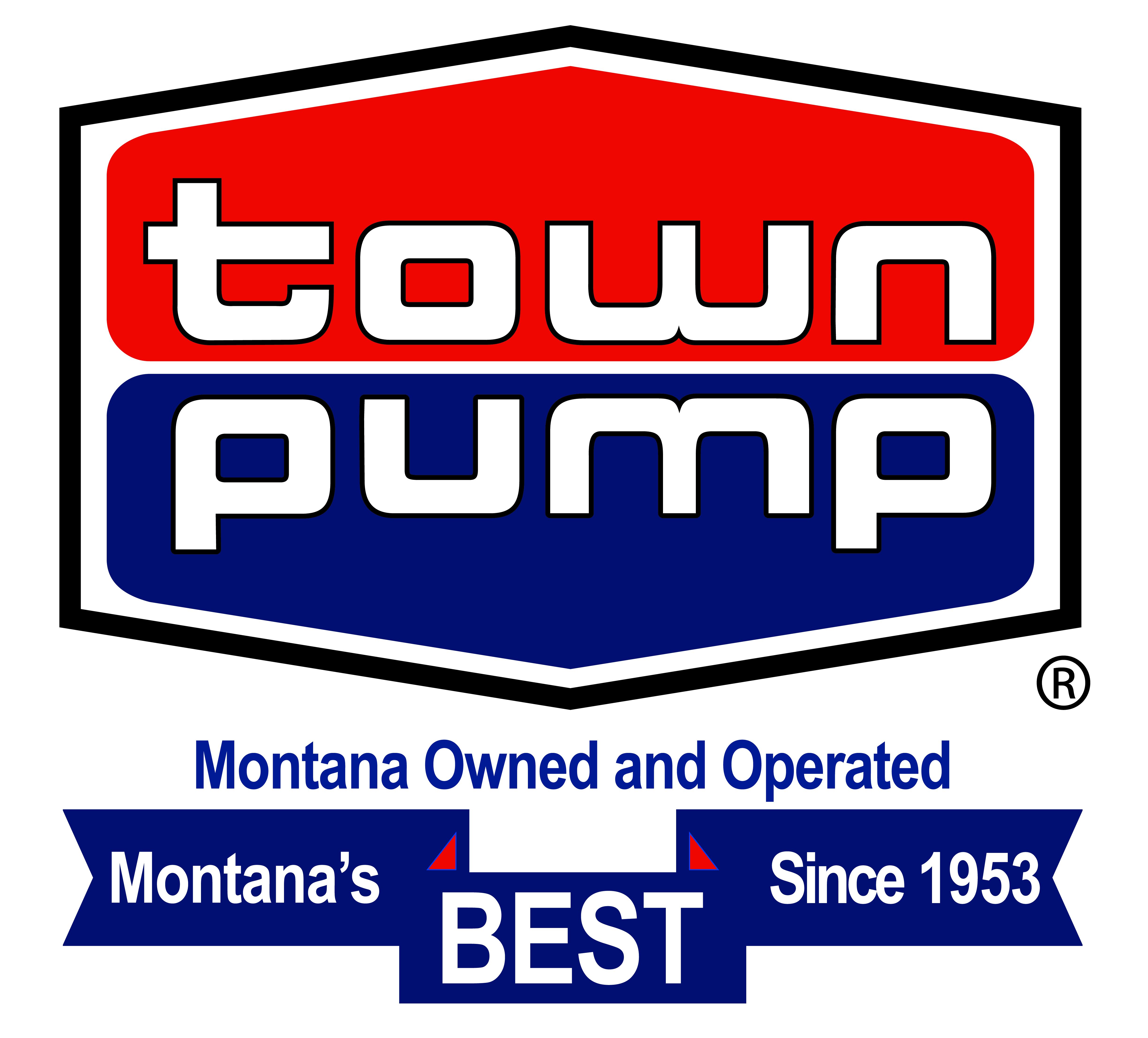
“The work ethic, you gotta be an early riser, you have to be tough, you have to be competitive, so I think when we were recruiting Lan, when I watched his tape, I didn’t know the family the way the Hawkins family knew the family but I just watched the tape and I could see this dude was super athletic,” Plough said. “Then you begin to get to know the story behind the player and you look at his parents, look at his family, you think about what does he do as a hobby? And you realize, this guy wrestles steers. This guy is tough. This guy is a leader. This dude goes hard. And we knew he was going to be really special.
“Anybody involved in that type of work outside of football has a chance to be successful.”
Larison’s bio on the UC Davis website reads: Avid rodeo competitor, following footsteps of older siblings and professional rodeo athletes Ringo and Rainy Robinson” before mentioning his state-championship wrestling accolades.
When asked if it was more intimidating meeting a standout linebacker in the hole or wrestling a steer, he said that rodeo, particularly because of the adrenaline and the unpredictability, takes the cake.
“Growing up like that, rodeoing, it brings a sense of toughness, growing up around horses and work, stuff can go south pretty quick,” Larison said with a chuckle. “I was beat up a lot from it growing up and that just shows that sense of toughness and resiliency.”
Grebe and Larison met at the Big Sky Kickoff this last summer and instantly had a connection from their former rodeo escapades.
“I think rodeo and ranching, it just brings a certain level of toughness,” Grebe said. “Lan said he grew up on a ranch too, and obviously it’s worked for him, just like it’s worked for me and growing up, having responsibilities, having a lot on your plate, knowing that you’re going to have to go out and do chores and go to work and stuff before school on the weekends, during the summer, I think it just brings a different amount of mental toughness and physical toughness.”

Wilson, who’s been a stalwart on a Griz defense that’s experienced growing pains after losing a huge number of key pieces from last year’s lights out unit, will be the first to tell you that he’s a “city cowboy.”
“I just like putting on the boots and the hat,” he said with a chuckle.
He does not possess nearly the horseback skills of his father, who was also a pretty good football player during his time playing for Woody Hayes at Ohio State. Still, the lessons he learned before embarking on his football journey have been impactful.
“Where I grew up helped work toward my mentality, the way I was raised contributed to that mentality growing up in Texas, I really embrace that and applied that every day, waking up early and seizing every opportunity I have,” Wilson said. “It led me to Montana and I am having a lot of fun with it. All the cowboys in the league are making plays to it’s good to see the brand rolling.”
The Grebe ranch is a throwback to days past. The Wilson ranch is the modern spin on an old-school ethos. Larison comes from a place where it’s a lifestyle as much as a way to make a living.
The trio is just three of many, many stud Big Sky football players past and present with cowboy roots, including an array that have starred at the Montana schools.
The All-American threesome is the latest example of how growing up learning to work can have a positive impact on an athlete.
“If we can grab a piece of that work ethic, that can rub off an all of our guys,” Vigen said. “It’s way more than just wearing a cowboy hat. It’s a state of mind. It’s how you go about your business.”
